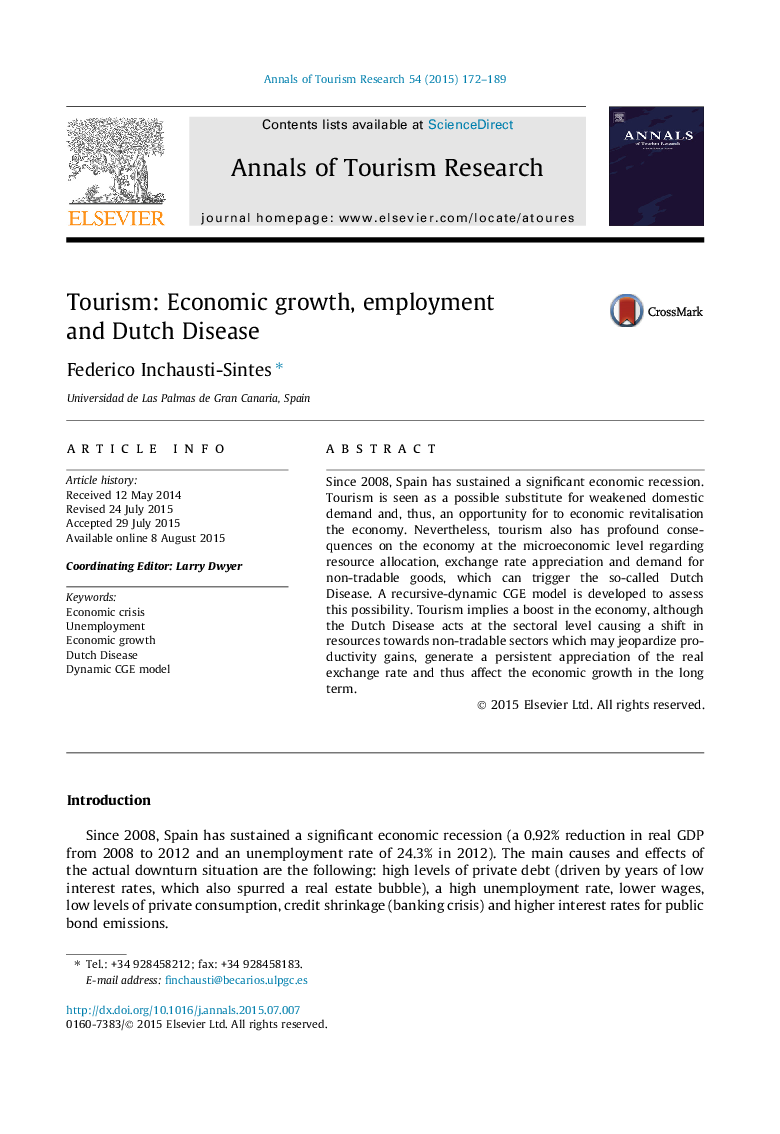| Article ID | Journal | Published Year | Pages | File Type |
|---|---|---|---|---|
| 1006977 | Annals of Tourism Research | 2015 | 18 Pages |
•Tourism promotes economic growth and reduces unemployment.•Tourism improves the terms of trade and enhances capital accumulation.•The Dutch Disease produces de-industrialisation (increase in non-tradable sectors).•The re-allocation of resources could imply lower productivity gains.
Since 2008, Spain has sustained a significant economic recession. Tourism is seen as a possible substitute for weakened domestic demand and, thus, an opportunity for to economic revitalisation the economy. Nevertheless, tourism also has profound consequences on the economy at the microeconomic level regarding resource allocation, exchange rate appreciation and demand for non-tradable goods, which can trigger the so-called Dutch Disease. A recursive-dynamic CGE model is developed to assess this possibility. Tourism implies a boost in the economy, although the Dutch Disease acts at the sectoral level causing a shift in resources towards non-tradable sectors which may jeopardize productivity gains, generate a persistent appreciation of the real exchange rate and thus affect the economic growth in the long term.
